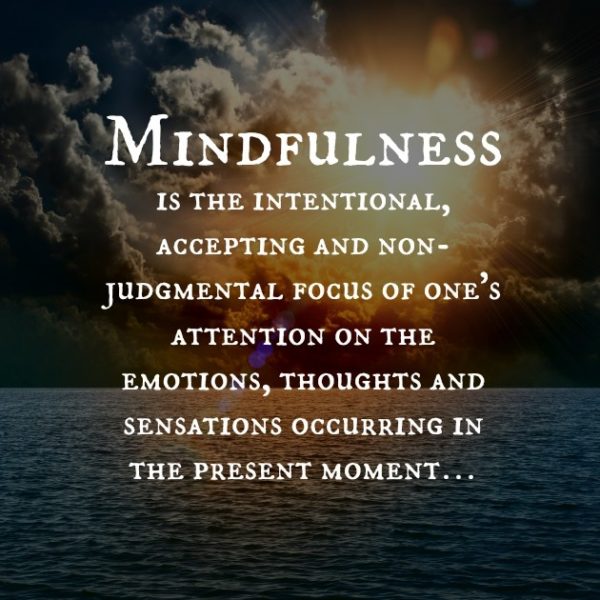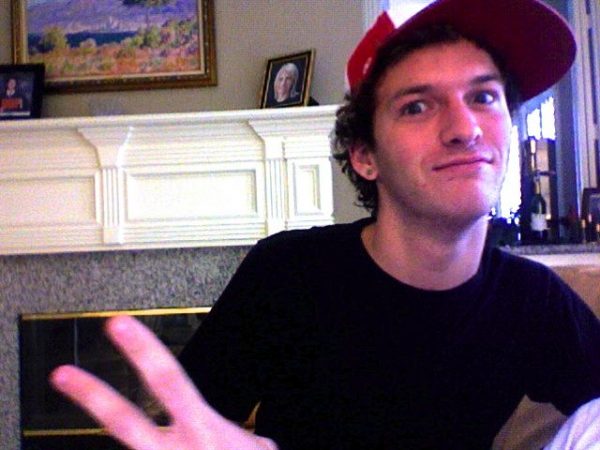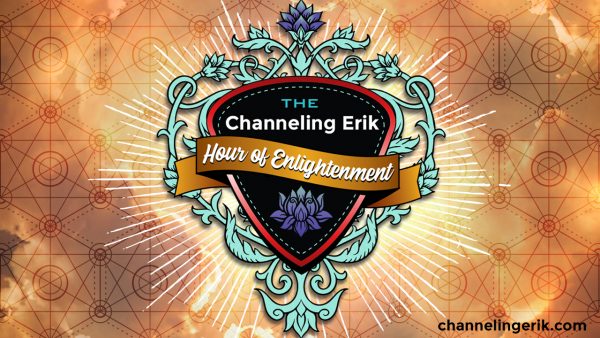Happy Monday, peeps. I hope you all had a great weekend. Mine was spent doing the usual errands, taking care of my grandson, Easton while Michelle was doing her clinicals in the hospital, and hanging out with a lot of Channeling Erik members. When I take care of Easton, it makes me wonder how I had the energy to take care of my own kids. Michelle delivers him to my bed around 5:00 AM. He sleeps for a while, then wakes up a couple of hours later, grins and crawls all over my face and delivers a few healthy doses of slime to me. Every once in a while, he gets too close to the edge of the bed, so I have to drag him back to center. This is, of course, when I’m half asleep. Eventually, I get up, feed him solids, give him a bottle, change and dress him. Then we play on the floor, go outside for fresh air and it’s nap time. Rune and I take him to Walmart and do other errands before passing him on to his daddy when he gets home from work. I can’t believe I did this with five kids the height of activity being with a newborn, a two year-old, a four year-old, a seven year-old and a ten year-old. Whenever we were out and about with our first child, Kristina, we’d take everything with us: a diaper bag loaded with so much crap that it would make a prepper proud. I mean, we were ready to take care of a child during a Zombie apocalypse. After another child or two, we carried one diaper in which three wet wipes were neatly enclosed and we’d only clasp three of the four point restraints on the carrier. Living on the edge. Anyway, the point I’m trying to make–or am I trying to make one? –is that I don’t know how I managed along with working as a physician full time. I don’t think I could do it now, which is why parenthood is reserved for the young.
Now for Erik’s views on mindfulness and grief.
Me: Howdy!
Kim: Hi!
Me: How you doing? Still doing good?
Kim: Yeah. I have my heating pad in my lap because it’s so chilly out today.
Me: Erik, how are you doing? Still okay since 5 minutes ago?
He chuckles.
Me: This will be brief. Can you give us a few tips on how to achieve mindfulness? That’s so important. First you might want to explain what mindfulness is.
Erik: It is really important. Mindfulness is not only limited to being connected to right here, right now but also being conscious of your decisions and your actions simultaneously while it’s happening. The importance of mindfulness is that it not only connects you to your Higher Self, but it also keeps you in check with yourself and your environment simultaneously. If I’m making a decision, I think about how it affects me right now and how it affects the environment right now.
Me: Including other people in the environment.
Erik: Right. A lot of people get mixed up and think that mindfulness just means being in the Now moment and collecting your thoughts here. That’s part of it. It’s the awareness of that as well. When you’re truly mindful and in that vibration—
Kim (laughing): He’s snapping his fingers.
Erik: That’s the fun shit because if you’re really mindful and in that moment, you can manifest.
Me: Mm!
Erik: It works so much better because, think about it, if you really are in the here and now and thinking about the power connected to it, you can manifest because the highest concentration of your energy is here, collective.
He puts both hands, palms facing each other, in front of his chest.
Erik: If you’re in the past, if you’re in the future, if you’re worried about this or that, your consciousness is all over the place so it’s much harder to manifest anything you want. So bringing this into your mindfulness is boot scoot and boogey.
Kim laughs.
Erik: That’s when it’s really fun. It’s easier to manifest what you want.
Me: Well, and also I would think that if you had a painful past, it would help heal you because you’re no longer attached to the past or apprehensive about the future for that matter.
Erik: That’s true, and when you think about your painful past and you think about it and you think about it, if you’re truly mindful, you’re aware that bringing that shit from the past into the Now will affect your Now. It’s determining the experience of your Now.
Kim: He’s communicating real funky today. I like it because it’s easy to understand, but it’s image and vibration at the same time.
Erik: Same thing with being apprehensive about the future. If you freak out all the time about what the fuck’s about to happen or what might or could happen, you’re going to miss what is happening. We do it all the time. What a shame. So that again is how it affects your ability to be conscious and aware in the moment that you’re in. Being mindful, being connected to right now and how that affects your environment right now—people around you, your experiences—(He snaps his fingers) Collect yo’ self.
I laugh.
Me: How will mindfulness help the grief of those who have “lost” a loved one? How will mindfulness help us heal?
(Long pause)
Kim (responding to what she heard Erik say): That sounds so insensitive.
Erik: First of all, by knowing that regurgitating the past, the pain, isn’t going to help you. Second of all, it’s going to separate you from right now. If you keep going to the past and regurgitating the pain that you’ve gone through, which is hard because it’s part of our makeup as humans, but the more we do it, that’s where the mindfulness comes in—we are choosing to do it. The more we choose to do it, the more pain and suffering we endure. Bring in mindfulness. What that looks like is this. “Okay, I understand I lost my brother. This is what happened. I have to accept it for how it is. This is my Now. This is my normal, my life now.” When we go back and regurgitate, we often stay attached to how things were. We can’t be mindful doing that because it’s not like that anymore. It’s changed. Staying connected to those attachments is what pulls us away from our own ability to be mindful. (He twirls his head around.) Is that a mind-bender for you? Did you get it?
We both laugh.
Me: Sort of, but for example, a grieving person might stay in the past by thinking, “Oh gosh, he was so unhappy while he was here. When I found him after he took the overdose, it was just so horrible.” Those are things that you would drag into your Now that would be harmful, of course, and then as far as the future is concerned, “How will I live without him,” thoughts like that—
Erik: One thing I want to make clear is that I’m not asking you to not process the emotions because that’s vital. I’m asking you to identify your attachments because even if we look at the future and think, “How am I going to live without them,” I know I’m asking a lot because in the human experience, it’s much different than the way I see it now, but you have to acknowledge the attachment. “That person was my uncle, and now my uncle isn’t here.” You had that attachment to the role they played in your life and the void that they filled.” Identify the attachment. It’s all about change, Mom. You have to accept and allow the change. It’s hard, and it’s a new normal so it feels foreign, and getting used to that is hard, but the more you push it away and resist what is new and different, the more you push yourself away from mindfulness and stay stuck in past experiences and separate yourself from the Now by having anxieties about what’s ahead of you.
Me: Okay. Can you give us some tips on how to achieve mindfulness? I’m sure it involves a lot of discipline and practice.
Erik: It really does. The best way to envision and experience it is to put yourself into the observer’s seat. Take the seat of the observer and observe yourself in every moment. Observe what you’re doing, how you’re doing it, how it’s affecting others, what you’re thinking, what you’re feeling, because if you at least keep that little thought of observing in the forefront all the time instead of just reacting and doing, you’ll be much more mindful of every moment.
Me: It’s so hard. I’m the least mindful person in the world. I’d sit their and be observing my inner and outer landscape and all of a sudden, ‘Did I change the cat litter?’ ‘What should I make for dinner that the kids won’t complain about?’ So, it’s a little hard. Go ahead. I interrupted.
Erik (getting his face right into the camera): Guilty! You have to take responsibility. I’m talking to people in general. You have to take responsibility in knowing that sometimes you deliberately don’t want to be mindful for whatever reason. You also have to take responsibility in knowing that it’s not going to be something that just happens. It’s not going to just appear like a fluff out of midair. It takes action—
Kim listens.
Kim: What’s with all these Ds?
Erik: Diligence, determination and discipline.
Kim covers her face, embarrassed.
Me: Okay, triple Ds.
Kim: That’s exactly what he said! Triple Ds.
Me: Oh! Is he talking about bra sizes?
Kim (laughing): Uh huh!
Me: I figured. All right, so why would a person not want to be mindful? You said that sometimes they have to be responsible for not wanting to be mindful. Why would they not?
Erik: It’s a false sense of freedom. [Not being mindful] almost looks and feels like being carefree, but it’s false. It’s not true. They’re trying to escape their own reality by separating from what they’re experiencing right now. This is often when you see the birth of addicts. Addicts want to escape their own reality and don’t want that mindfulness and awareness. Also some people lack that discipline.
Me (raising a finger): Me.
Kim: Yeah!
Erik: They want to escape their reality for whatever reason. They want to throw caution to the wind and not give a shit and be carefree, but it’s really actually a false sense of freedom because they’re running from something.
Me: It seems so much easier to me to let my thoughts go wherever they want instead of focusing them on the present moment!
Erik: That’s fine. Let your thoughts go wherever they want, but be the observer.
Me: Oh, observe my thoughts going everywhere?
Erik: Yeah. Be the observer.
Me: Okay. I get that.
Kim: It’s interesting because I’m that way, too. I like to let my thoughts run away and see where they go.
Erik: By being the observer, you can also potentially see the outcome of your thoughts or the creation from your thoughts. There’s a whole lot that goes into this. We’re about to play.
Me: To wrap it up, any other tips to help us achieve mindfulness?
Erik: I just want to remind people that all you really have is right now, this moment, so cherish it. Cherish this moment and then this moment and then this moment. These are all you really have. Be in this moment. Make a conscious choice and feel it because I promise (He pretends he’s texting on a phone.) you will miss it. If you don’t take those opportunities to be mindful and really soak up each moment you’re in, I promise you will re-experience it in a way where you’re like, “Oh, I should have.”
Me: Yeah. Okay, any other suggestions before we close?
Erik: Just listen to yourself. (He blows kisses.) I love you guys!




